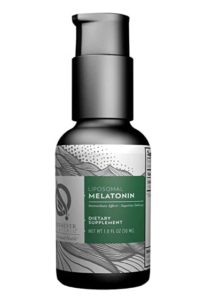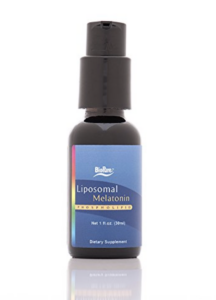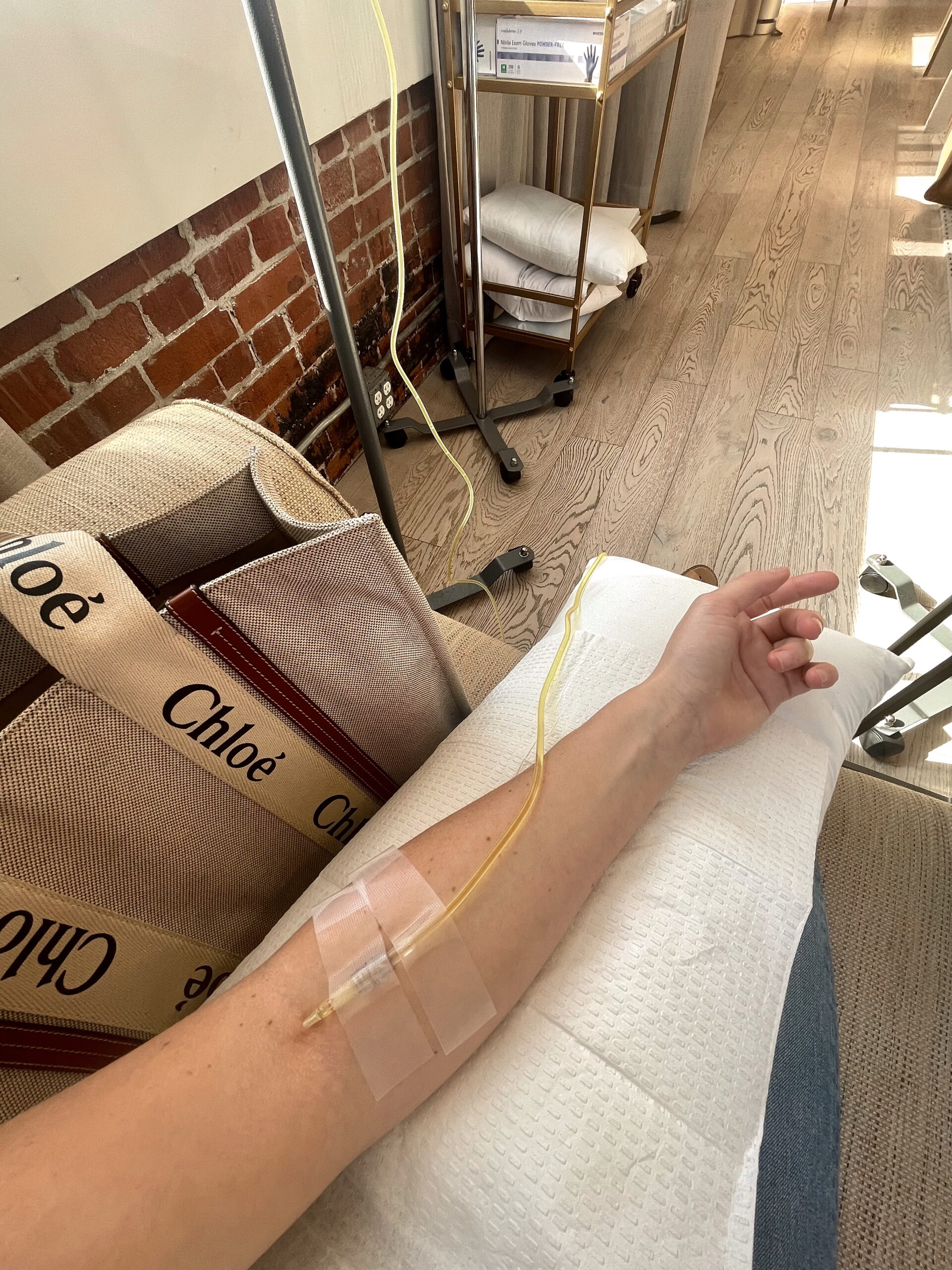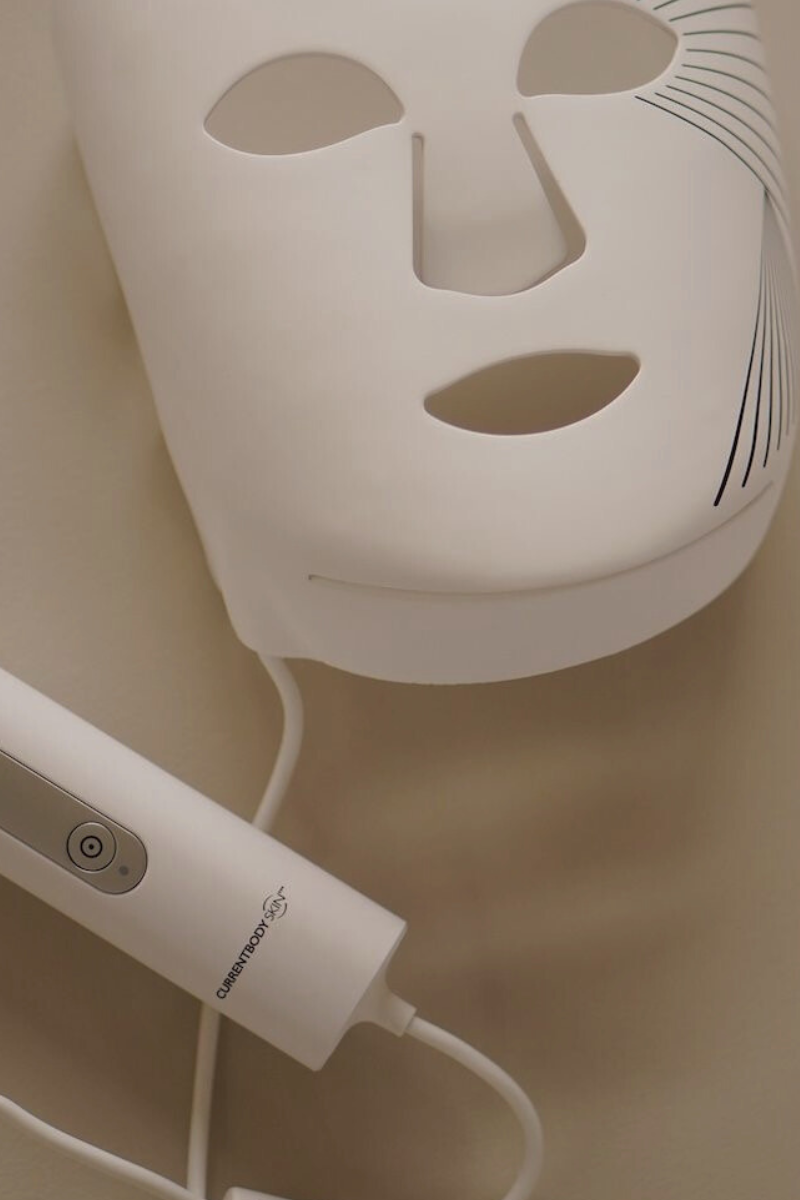Chronic health conditions come almost hand-in-hand with poor sleep. We all know that sleep is vital to proper health, but what most people don’t know is that sleep how melatonin plays a role in detox.
Unfortunately, poor sleep and chronic conditions are a cyclical cycle: we are sick partly because we can’t detox, but we can’t detox because we’re sick. Getting a solid night’s sleep—not a pill-induced knock-out, but real sleep and waking well rested—is strongly healing, and one of the main ways we can get toxins out of the brain. So if we’re struggling with getting adequate, non-prescribed sleep, how can we get our circadian rhythm in-check?
This is where we introduce liposomal melatonin. Ask yourself this: have you tried taking melatonin for better sleep and find that it just doesn’t work? Stomach acid often breaks it down before much can be absorbed, so it never gets to the brain. A good liposomal product is absorbed orally and moves to straight to the brain, having a noticeable effect within the hour for most individuals.
Why Brain Detox Matters
Here’s a concept to solidify in your brain: we’re constantly living in a highly toxic environment. Even if you don’t consider yourself to live in a toxic environment, we’re breathing in heavy metals and consuming glyphosate and other toxins on a regular basis. Just imagine your household if the garbage man never came, the pipes got clogged, no air filters, the toilet never flushed, and you had no other way to dispose of your waste. How long could you last be before the accumulated waste becomes a serious problem?
This is how we should look at detoxing as a whole, and specifically the brain. Because we consume more than we detox, toxins and metabolic waste build up in the brain. This eventually leads to things like brain fog, anxiety, depression, poor memory, and more. Although a deficiency in melatonin is only one of the many possible causes of these symptoms, having a deficiency may exacerbate them.
The glymphatic system
You’ve probably heard of the lymphatic system, but have you heard of the “glymphatic” system? The glymphatic system is a waste clearance system that promotes efficient elimination of buildup and waste from the central nervous system. The glymphatic system drains toxic buildup and waste products that could contribute to neurological disorders, specifically the ones related to Alzheimer’s disease.
This flushing is like a healthy “brain drain,” and it’s facilitated through the circulation of cerebral spinal fluid. Not only does the glymphatic system flush out toxins, it also flushes in nutrients, glucose, lipids, amino acids, growth factors, and neuromodulators to neuronal and glial cells. In order for the glymphatic system to properly do its work, it relies heavily on melatonin and a good night’s sleep.
Factors that can affect melatonin production
Light exposure
When you expose yourself to light after sunset, the brain automatically thinks that it’s daytime and won’t produce adequate amounts of melatonin. And we’re not just talking light from light bulbs – phones, tablets, computers and other screens that emit blue light are known to keep people awake and alert. L.E.D. light emitted from screens with at least 35% blue light immediately stops the production of melatonin. Avoid using screens, opt for low lighting at night and automatically set your phone on “night shift” mode at 7pm.
Electromagnetic field (EMF) disruption to pineal gland
Nowadays, most people resort to using their cell phone as a daily alarm. But for those who aren’t aware of the damaging effects of cell phone radiation, having a cell phone next to your bed can actually negatively impact your sleep – especially the apps that use motion sensors to detect sleep quality. Try keeping your phone off or on airplane mode during rest and leave on the other side (or out) of the room while charging. Not only do cell phones cause EMF radiation, Wifi is just as bad. For those who are light sleepers, it’s worth shutting off your home’s wifi to allow your body to heal and rest.
Poor diet and food absorption
There are a few building blocks needed for body makes its own melatonin. These include certain amino acids, B vitamins, magnesium, and methyl donors. Unfortunately, deficiencies of these are common, largely due to poor diet and access to quality food. There’s also a chance the body isn’t digesting or absorbing vitamins and minerals properly, which can question whether there’s inflammation or other issues in the gut. If you find yourself having issues with food or digestion, find a trusted doctor who can perform a proper gut and food sensitivity test.
Prioritize good sleep
No matter what causes your sleepless nights, liposomal melatonin can help the body absorb melatonin more efficiently, help detox the brain and normalize sleeping patterns. Like most other supplemental detox therapies, once enough material is cleared out of the brain, natural melatonin production should picks up again, given the person stays on a good detox maintenance regimen . Talk to your doctor about liposomal melatonin and find the right detox program that works best for your needs.
This article is not meant to be taken as medical advice and for informational purposes only. Please talk with your healthcare provider before using melatonin therapeutically.








Comments +